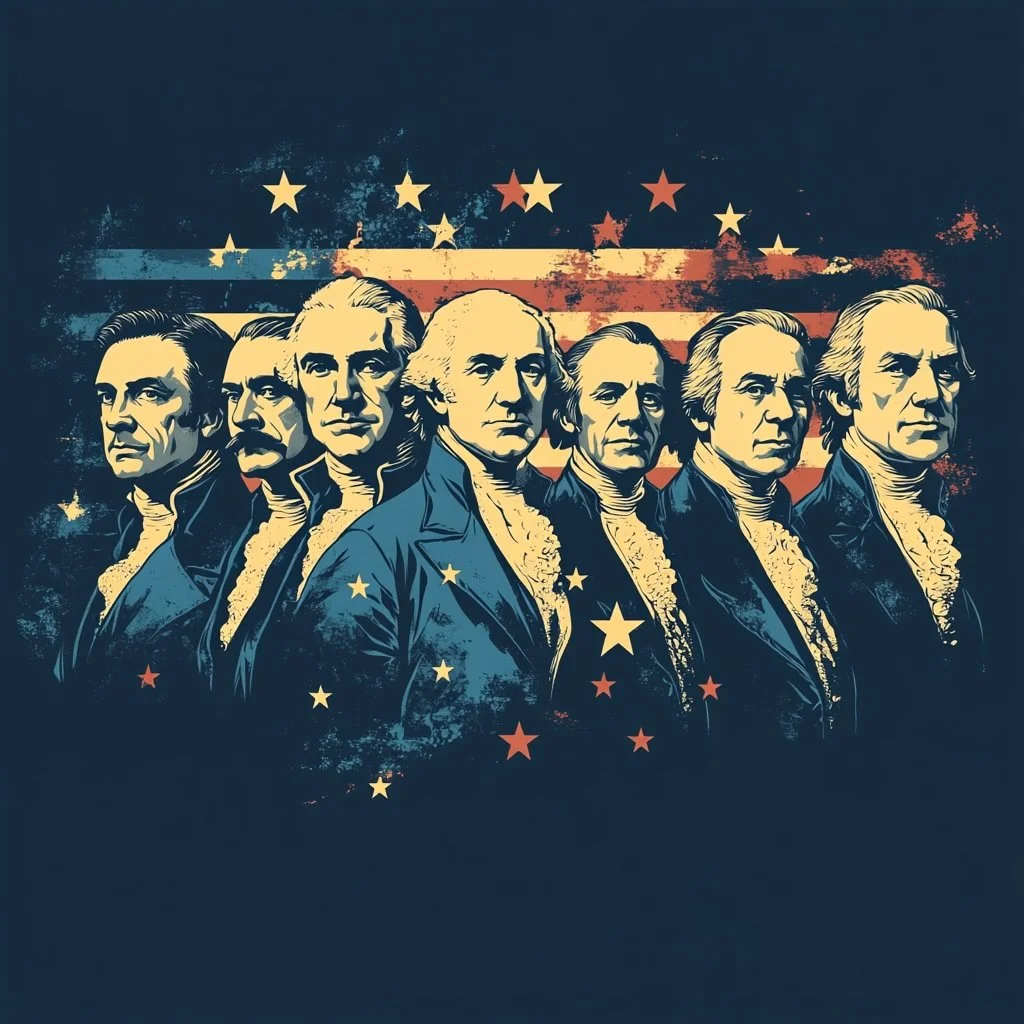America’s Founders.
Differences Between the Left and Conservatives Part II
America’s Founders.
For the left, America’s founders are judged primarily as white, wealthy slaveowners, and any advancements they contributed to the American experiment are viewed through the lens of their involvement in slavery. Some on the left argue that these contradictions should nullify the founders’ achievements.
For conservatives, the founders are seen as some of the greatest figures in history—visionaries who launched the greatest experiment in human liberty. They acknowledge the contradictions, especially regarding slavery, but emphasize the founders’ achievements in establishing a nation based on principles of liberty and self-government.
Among the most prominent founders, George Washington, the first President and Commander-in-Chief of the Continental Army, owned many slaves but expressed growing discomfort with the institution later in life. In his will, he arranged for his slaves to be freed after his wife’s death—a rare act among Southern slaveowners. Thomas Jefferson, the third President and principal author of the Declaration of Independence, owned hundreds of slaves, yet famously wrote that “all men are created equal” and condemned slavery as an “assemblage of horrors” in his original draft of the Declaration, a passage that was ultimately removed. Benjamin Franklin who was a celebrated diplomat, scientist, and President of Pennsylvania, owned slaves earlier in life but became an abolitionist, helping to found the Pennsylvania Abolition Society and advocating for gradual, legal abolition.
It should be noted that not all founders were slaveholders. John Adams, the second President and a leading revolutionary, never owned slaves and opposed slavery throughout his life. Alexander Hamilton, the first Secretary of the Treasury and co-author of The Federalist Papers, did not own slaves and was an outspoken critic of the institution. Alongside John Jay, the first Chief Justice of the Supreme Court and Governor of New York, Hamilton co-founded the New York Manumission Society, which fought to end the slave trade and protect the rights of free Blacks. Samuel Adams, Governor of Massachusetts and a key revolutionary leader, also did not own slaves and was a vocal critic of slavery. Thomas Paine, the influential writer and author of “Common Sense,” was a passionate advocate for liberty and human rights and did not own slaves.
It’s crucial to remember that slavery was not unique to America—slavery existed as far back as ancient Egypt and was a global institution for thousands of years. Even many founders who opposed slavery believed it could not be immediately abolished without risking the fragile new union.
This historical lens can help us reflect on our own era. Today, we benefit from technological advancements—like smartphones—that are often produced under ethically troubling conditions. The minerals used in our devices are sometimes mined in war-torn regions of Africa, where people are forced to work in dangerous conditions under armed supervision. In China, factory workers assembling smartphones have faced such grueling conditions that some have resorted to suicide. Just as the founders grappled with the moral contradictions of their time, we too face ethical dilemmas that are difficult to resolve but important to confront.
